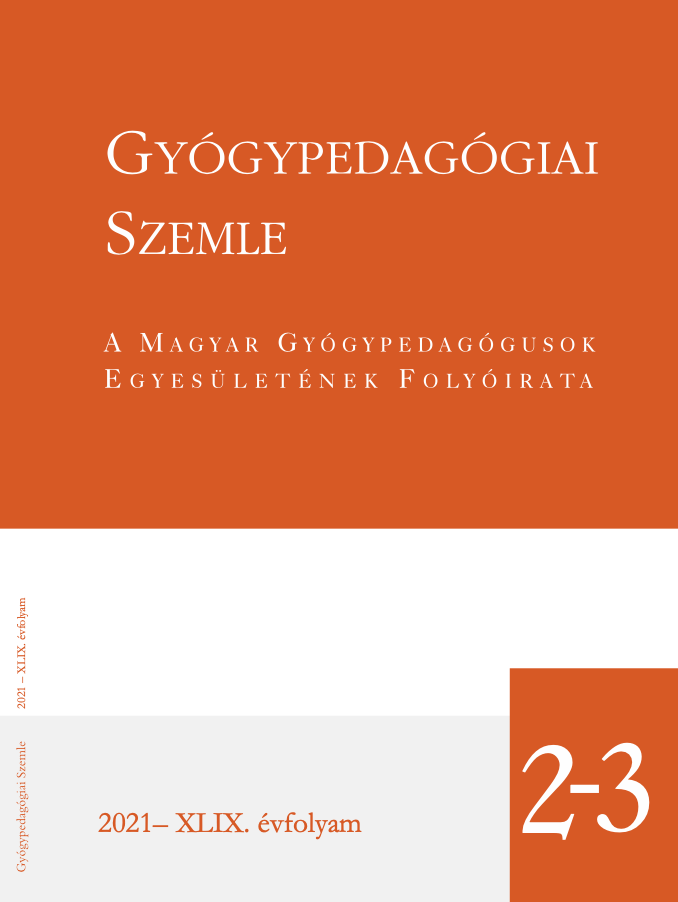Factors influencing attitudes towards the rights of people with intellectual disabilities
DOI:
https://doi.org/10.52092/gyosze.2021.2-3.2Keywords:
SDO, RWA, intellectual disability, pity, rightsAbstract
Background and aims: Our research aimed to study the attitudes towards the rights of people with intellectual disabilities (housing choice, marriage, employment, inclusive education, having children, adoption, participation in politics), which should be guaranteed according to the Convention on the Rights of Persons with Disabilities. The goal was to determine whether there is a correlation between these rights and to reveal the social-psychological factors behind the disavowal of them.
Method: In the present research, the effect of social dominance orientation (SDO), right-wing authoritarianism (RWA), and pity (an intergroup emotion) were studied.
Results: The correlations between the rights were tested using exploratory factor analysis and 2 factors were retained. The first factor consisted of the more supported rights which are strictly related to the person with intellectual disability. The second factor consisted of the less supported rights, which affect a bigger proportion of the general population. In the multiple linear regressions SDO and in some cases RWA were significant predictors of the disavowal of the rights. Adding pity to the model contradicting results were found, which require further research.
Conclusions: The result of this study can be a valuable starting point to better understand the factors behind the refusal of the social participation of people with intellectual disabilities. This information can help to improve the effectiveness of training programs aiming to promote inclusion.
Keywords: SDO, RWA, intellectual disability, pity, rights

